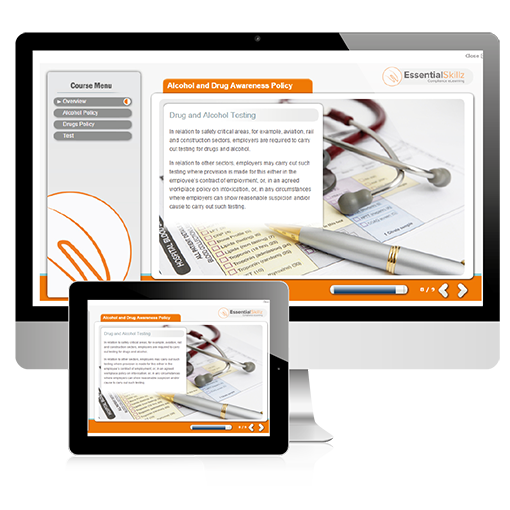Is alcohol in the workplace really a problem?
From lunchtime meetings to company socials, alcohol has always been part of workplace culture in some form. However, the negative impacts that alcohol consumption can have on an individual and your organisation at large are often quite significant.
According to the Institute of Alcohol Studies, a study in 1994, revealed that 90% of personnel directors from top UK organisations stated that alcohol consumption was a problem in their workplace, with 17% seeing it as a major issue. More recently, research indicates that 63% of UK workers admit that drinking alcohol at lunchtime makes them less productive and 40% say lunchtime alcohol consumption has a negative impact on their concentration, and, although numbers are falling, consuming alcohol on lunch break remains a significant issue that employers must contend with.
Alcohol Awareness and health.

Alcohol can have a significant negative impact on health. Alcohol can raise blood pressure, increase the risk of heart disease and stroke, cause liver damage, cirrhosis of the liver, and increase the risk of cancers of the mouth and throat. Additionally, alcohol can cause behavioural changes, bad behaviour and poor discipline could lead to low morale for the rest of your employees, which can have a detrimental impact on productivity all-round.
Alcohol consumption during lunchtime not only affects the individual health of employees, but also those around them. Any organisation that requires the use of operational machinery are guaranteed to be an increased risk of workplace accidents, as reaction times and decision-making abilities can be significantly impaired. Being under the influence of alcohol can also cause emotional impairment which can often result in aggressive and even violent behaviour which can potentially put other employees at risk.
Alcohol Awareness: Your responsibilities as an employer.
One question you should always consider is if you doing enough to make sure your workers are aware of your organisation’s position on alcohol consumption?
Employers should always take steps to provide staff with clear rules on alcohol consumption during work hours. By putting appropriate policies and procedures in place you will also support for personnel affected by alcohol.
 Guidance from the Health and Safety Executive (HSE) explains your legal obligation under the Health and Safety at Work etc Act 1974 and the Management of Health and Safety at Work Regulations 1999 to provide a healthy and safe working environment. The HSE advises that your policy should be formed in consultation with staff and other stakeholders and a clear focus on support is essential.
Guidance from the Health and Safety Executive (HSE) explains your legal obligation under the Health and Safety at Work etc Act 1974 and the Management of Health and Safety at Work Regulations 1999 to provide a healthy and safe working environment. The HSE advises that your policy should be formed in consultation with staff and other stakeholders and a clear focus on support is essential.
Ensuring that your management is aware of the issues and challenges associated with staff misusing alcohol is fundamental. In addition, guidance for staff on the dangers of alcohol abuse is critical.
Training courses aimed at raising awareness go a long way to helping solve problems relating to alcohol in the workplace.

The VinciWorks Alcohol and Drug Awareness eLearning course highlights the dangers associated with drugs and alcohol misuse in the workplace. The online course highlights how alcohol and drug-related problems not only affect individuals physically and emotionally but also cause problems in the workplace. The course identifies the responsibilities of employers and employees regarding the use of alcohol and drugs in the workplace.
As with all the VinciWorks courses, this Alcohol and Drug Awareness eLearning course can be customised to meet your needs, enabling your workforce to understand the specific policies and procedures you have developed for your organisation. A designated course administrator can edit the text and images within the course using our integrated authoring tool, and link to organisation-specific documentation, all at no extra cost.
Looking for in-depth and engaging health and safety training? Explore our comprehensive eLearning library and try any of our courses for free.








